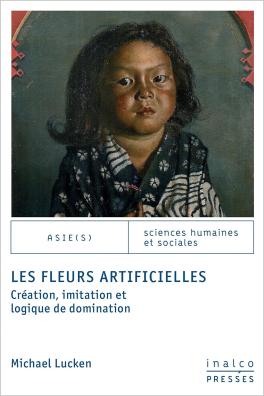
Artificial Flowers
Creation, imitation and the logic of domination
21 €
Presentation
The image of Japan as a nation of imitators has a long history: in Europe, it emerged in the 18th century and until recently has passed through various distinctive phases. Although linked to modernization, the history of this stereotype not only sheds light on Japan’s encounter with European culture, but also mirrors Western conceptions of art in which counter-models were necessary to support the notion of creation as the highest ideal. The first part of this book aims to show, through the discourse on Japan, how and why in the modern era the aesthetic issue of imitation lies at the heart of the relationships of symbolic domination between cultures and, more broadly, between people.
The Japanese have not been passive in the face of this situation. They have assimilated and re-employed this discourse, notably with regard to China, and have attempted to respond to it, whether through denial, reviving local skills or appealing to national spirit. Nevertheless, despite largely rejecting explicitly mimetic devices, they have not espoused a purely subjective attitude towards creativity, which is manifested through a taste for anything of physical matter that cannot be sublimated, such as earth or bones. The analysis of major modern and contemporary Japanese works, such as Ikiru (“To Live”) by Kurosawa Akira and Spirited Away by Miyazaki Hayao, aims to reveal how great Japanese artists of the 20th century have brought the notions of creation and imitation into harmony. It also aims to show how these alternative approaches, which contradict a heroic and desocializing view of the artist, enable acceptance, as far as possible, of the element of death within life.
Author
Michael Lucken is a historian and university lecturer. A professor at Inalco since 2000, he currently leads the Centre for Japanese Studies (CEJ).
278 pages
16 x 24 cm
Publication: 19/05/2016
ISBN: 9782858312702